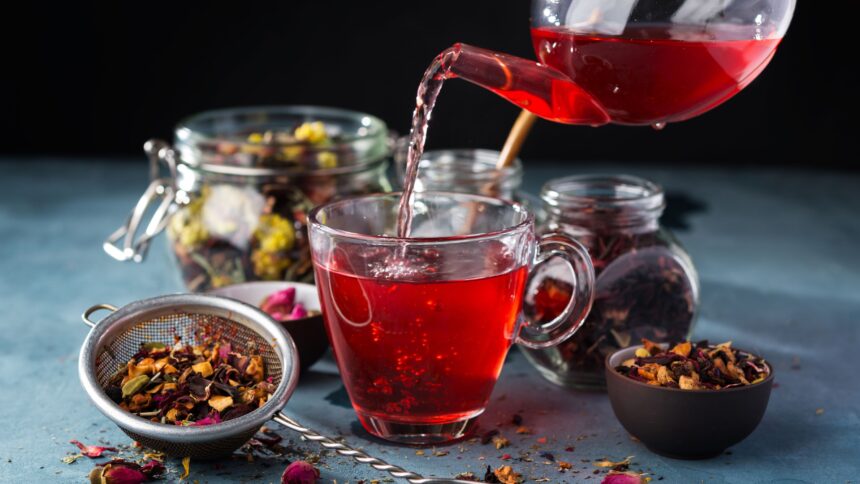When it comes to skincare, the pursuit of glowing, radiant, and even-toned skin is a common goal for many individuals. One natural approach that has gained attention in recent years is the use of certain teas for skin whitening. Among the various tea options, some have been touted for their potential to enhance skin complexion and brightness. In this article, we will explore which teas are considered good for skin whitening and the potential mechanisms behind their effects.
Which Tea is Good for Skin Whitening?
The tea that is often cited as being particularly beneficial for skin whitening is green tea. Green tea is rich in a class of antioxidants called catechins, with the most prominent one being epigallocatechin gallate (EGCG). These catechins have been shown to possess various skin-enhancing properties.
The Role of Green Tea in Skin Whitening
Green tea’s potential for skin whitening is attributed to several factors:
- Antioxidant properties: The catechins in green tea are powerful antioxidants that can help neutralize free radicals and oxidative stress, which can contribute to uneven skin tone and hyperpigmentation.
- Inhibition of melanin production: EGCG, the primary catechin in green tea, has been found to inhibit the activity of the enzyme tyrosinase, which is responsible for the production of melanin, the pigment that gives skin its color. By inhibiting this enzyme, green tea may help reduce the appearance of dark spots and even out skin tone.
- Anti-inflammatory effects: Green tea’s anti-inflammatory properties can help soothe skin irritation and redness, which can indirectly contribute to a more radiant and even complexion.
Other Teas with Skin Whitening Potential
While green tea is often considered the top choice for skin whitening, other teas have also been studied for their potential benefits:
- White tea: Like green tea, white tea is rich in antioxidants and has been shown to inhibit tyrosinase activity, making it a potential contender for skin whitening.
- Oolong tea: Oolong tea contains a unique blend of polyphenols and has been found to have skin-lightening properties, potentially through the inhibition of melanin production.
- Black tea: While not as extensively studied as green and white teas, some research suggests that black tea may also possess mild skin-whitening effects, likely due to its antioxidant and anti-inflammatory properties.
It’s important to note that the effectiveness of these teas for skin whitening may vary among individuals, and the results may not be immediate. Consistent and long-term consumption of these teas, along with a balanced and healthy lifestyle, may be necessary to see more noticeable results.
How to Incorporate Skin-Whitening Teas into Your Routine
To reap the potential skin-whitening benefits of these teas, there are a few ways you can incorporate them into your daily routine:
- Drinking the teas: Consume the teas as a beverage, either hot or iced, on a regular basis. Aim for at least 1-2 cups per day for optimal effects.
- Using tea-infused skincare products: Look for skincare products, such as serums, toners, or masks, that contain extracts or infusions of green, white, or oolong tea. These can provide direct topical application of the beneficial compounds.
- Creating DIY tea-based masks or treatments: You can also create your own homemade face masks or treatments by steeping the tea leaves in water and applying the cooled liquid or mixture to your skin.
It’s important to note that while these teas may have potential skin-whitening effects, they should not be seen as a quick fix or a substitute for a comprehensive skincare routine. Incorporating these teas as part of a balanced, holistic approach to skin care, along with a healthy lifestyle, can contribute to an overall brighter and more even-toned complexion.
In conclusion, among the various teas that have been studied for their skin-whitening potential, green tea appears to be the frontrunner. The catechins, particularly EGCG, in green tea, have been shown to possess antioxidant properties, inhibit melanin production, and exhibit anti-inflammatory effects, all of which can contribute to a more even and radiant complexion. Other teas, such as white, oolong, and black tea, have also demonstrated some skin-whitening capabilities, but the research is not as extensive.
To incorporate these skin-whitening teas into your routine, you can drink them regularly as a beverage, use tea-infused skincare products, or create DIY tea-based masks or treatments. However, it’s important to remember that these teas should be part of a comprehensive skincare regimen and a healthy lifestyle, as they may not provide immediate or drastic results on their own.




